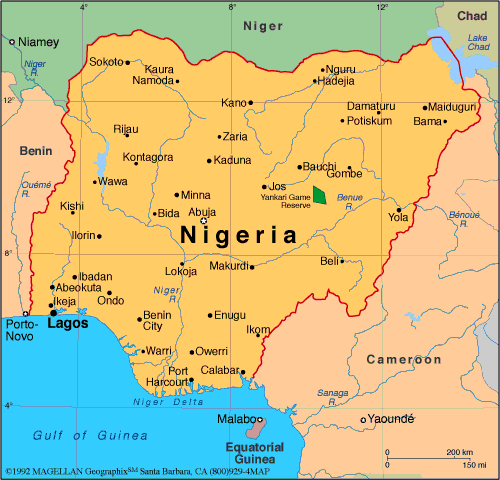By Onaivi Cephas
 It was another interesting moment two weeks ago when the Appeal Court decided the case brought to it by the People’s Democratic Party PDP, and its candidate, Pastor Osagie Ize-Iyamu, against the victory of Governor Godwin Obaseki of the All Progressives Congress APC, in the September 2016 Edo State Governorship Election.
It was another interesting moment two weeks ago when the Appeal Court decided the case brought to it by the People’s Democratic Party PDP, and its candidate, Pastor Osagie Ize-Iyamu, against the victory of Governor Godwin Obaseki of the All Progressives Congress APC, in the September 2016 Edo State Governorship Election.
In appealing the judgement of the Tribunal, the petitioners raked up many claims that turned out to be figments of their imagination. This piece captures the core of those erroneous contentions and the positions of the appellate court on them.
In dismissing the appellants’ case, the trial judge notes that having perused the issues formulated by the appellants along with the grounds of appeal, it is very obvious that the appellants engaged in prolixity and proliferation of grounds of appeal and issues. But the Supreme Court has consistently emphasised the fact that the success or failure of an appeal is not dependent on the quantity of the grounds of appeal but on the quality of the contents of the grounds of the appeal and the issues distilled there from.
The petitioners alleged in their appeal that the respondents did not sufficiently prove that their victory, as declared by INEC, was deserved. But the position of the law is that a petitioner is to succeed on the strength of his own case and not on the weakness of the case of the respondents. In other words, the burden of proof is on the claimant. The petitioners deposed that the election was marred by non/improper accreditation, inflation and reduction of scores, alteration of results, over-voting, swapping of votes and inadequate or non-filling of forms. But the position of the law drawn from Evidence Act, section 1135 (1), is that these allegations have criminal elements, hence they require proof beyond reasonable doubt.
On the appellants’ complaint that the Tribunal failed to properly evaluate the evidences adduced by not putting the same on the imaginary scale of justice, the Appeal Court rules that the law is settled that for a piece of evidence to be put on the imaginary case it must first pass the test of credibility, cogency and legal admissibility, and that where the evidence adduced has been discredited during cross examination, there will be nothing left for the purpose of weighing on an imaginary case.
In its response to the appellants’ complaint that INEC’s refusal to call witnesses was tantamount to an abandonment of their deposition before the Tribunal, the Appeal Court rules that the law is settled that the onus of proof does not shift until the petitioner has discharged the burden placed on him by the law, and that it is only if the Tribunal or Court is satisfied that the petitioner has discharged the burden that Tribunal or Court will move to the next stage of considering the evidence of the respondent. If the petitioner fails to lead cogent, credible and satisfactory evidence in support of his/her petition, the Tribunal or Court has no duty to consider the case of the respondent.
Moreover, the appellants’ counsel maintained that the Tribunal did a wholesale condemnation of the evidences of his clients’ witnesses as hearsay. In giving its verdict on this, the Appeal Court has this to say: “The ward collation agents could have seen what happened only in the polling units where they voted and can therefore testify only in respect of those units. The evidence of PW1 and ward collation agents in respect of the polling units other than where they voted based only on their purported examination of the result sheets and reports received from polling agents are hearsay and inadmissible and were rightly rejected by the Tribunal”.
One other complaint by the PDP and its candidate is that the Tribunal erred by upholding that the election was conducted by INEC in substantial compliance with the Electoral Act. To this, the Appeal Court rules thus: “In setting out on the adventure to prove non-compliance with the Act, the Appellants went on the journey without the necessary implements that would have enabled them establish over voting or malpractices as envisaged by the Act, rather being empty handed had gone into the minor details of ticking or marking on the right side or left side, a situation akin to blowing of air which has no value.
The Appellants sought to establish over voting, irregularities and malpractices on INEC’s manual and ticking or no ticking of the voters register which are themselves just administrative directives of INEC not contained in the Electoral Act. What one expected is for the Appellants to show that registered voters in a polling unit or units were more than allowed or that accredited voters were less than cast votes – all of which are easy to establish where a party was not distracted by minor issues unless such irregularities did not take place.”
On the definition of over-voting which the appellants alleged, the Appeal Court rules: “Although the word used in Section 52 (2) of the Electoral Act 2011 as amended seems to suggest that over voting occurs where the votes cast at an election in any polling unit exceed the number of registered voters there, however the Supreme Court has held in Shinkafi vs. Yari (Supra) that in order to prove over voting the Petitioner must tender the statement of Result in the appropriate forms which would show the number of accredited voters and the number of actual votes.”
To prove over-voting, the Appeal Court clarifies: “What the law requires is that first of all the maker of the document must tender it and testify to its contents. Then the document must be subjected to the test of veracity and credibility, mathematical calculations and the correctness of the figures. But what the Appellants did here was to dump the documents on the Court by tendering it from the bar, got a few witnesses to identify or recognise some of the documents and left the Tribunal to figure out the rest in its chambers in contravention of the Supreme Court’s position which makes it clear that it is not the duty of the Court to sort out the various exhibits, the figures and do calculations in chambers to arrive at a figure to be given in judgment.”
Clearly, all of these irrefutably show that the Edo PDP and its candidate had no credible case.
It was not even that they did not organise their case well. No, they know they lost the election fairly but are too smitten by pride and vain consideration to accept defeat. Now that a Tribunal and the Appeal Court have made it abundantly clear that their claims are baseless and evidence of no credible value, one hopes these men and women of the PDP will cease to whine in the public’s ears about the loss of a paradise they never had in the first place. The law has no respect for self-pitying sentimentality; it recognises hard, unassailable evidence and logical facts.
Mr. Cephas a public affairs analyst, wrote from Benin City, Edo State.






